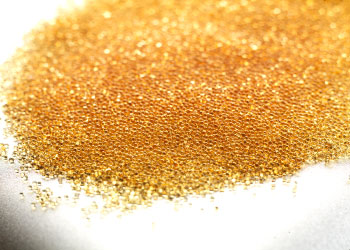
Image Source – Google
When it comes to ensuring clean and safe water for consumption and other uses, water treatment systems play a crucial role. One of the key components of these systems is ion exchange resins, which are widely used for softening water and removing harmful ions. Ion exchange resins are synthetic organic polymers that are designed to attract and exchange ions in water. They are highly effective in softening water by removing calcium, magnesium, and other hardness ions that can cause scaling and other issues. In this article, we will explore the benefits of ion exchange resins in water treatment systems and their importance in providing high-quality water for various applications.
One of the primary benefits of using ion exchange resins in water treatment systems is their ability to effectively soften water. Hard water, which is high in calcium and magnesium ions, can cause a variety of problems such as scale buildup in pipes and appliances, reduced soap efficiency, and skin irritation. Ion exchange resins work by replacing the calcium and magnesium ions in hard water with sodium ions, resulting in softer water that is less likely to cause these issues. By softening water, ion exchange resins help to prolong the lifespan of water-using appliances, improve the effectiveness of soaps and detergents, and reduce the need for harsh cleaning chemicals.
In addition to water softening, ion exchange resins are also used in water treatment systems to remove harmful ions and contaminants. These resins can be designed to selectively remove specific ions such as nitrates, sulfates, heavy metals, and other pollutants. By using ion exchange resins in water treatment, these harmful ions are exchanged with harmless ions, resulting in cleaner and safer water for drinking, cooking, and other uses. This process helps to protect public health and the environment by reducing the presence of contaminants in water sources.
Another advantage of ion exchange resins is their versatility and efficiency in water treatment applications. These resins can be customized to target specific ions or contaminants based on the needs of a particular water source. They can be used in various configurations such as columns, cartridges, and membranes, making them suitable for a wide range of water treatment systems. Ion exchange resins are also highly efficient in removing ions from water, making them a cost-effective solution for water treatment plants and other facilities. Their ability to be regenerated and reused further enhances their cost-effectiveness and sustainability.
Furthermore, ion exchange resins offer a reliable and consistent performance in water treatment systems. Unlike some other water treatment methods that may be affected by fluctuations in water quality or flow rate, ion exchange resins provide a stable and predictable treatment process. This ensures that water quality standards are consistently met, regardless of variations in the water source. The durability and longevity of ion exchange resins also contribute to their reliability, making them a trusted choice for water treatment professionals seeking consistent results.
Overall, ion exchange resins play a vital role in water treatment systems by softening water, removing harmful ions, and ensuring high-quality water for various applications. Their effectiveness, versatility, efficiency, and reliability make them a preferred choice for addressing water quality issues in residential, commercial, and industrial settings. By investing in ion exchange resins for water treatment, communities can enjoy the benefits of clean and safe water while protecting public health and the environment. As technology continues to advance, we can expect to see further enhancements in ion exchange resins and their applications in creating sustainable water treatment solutions.